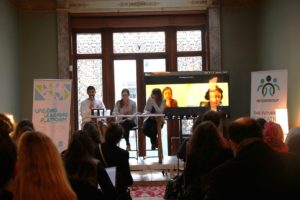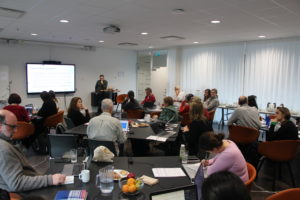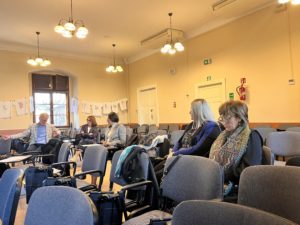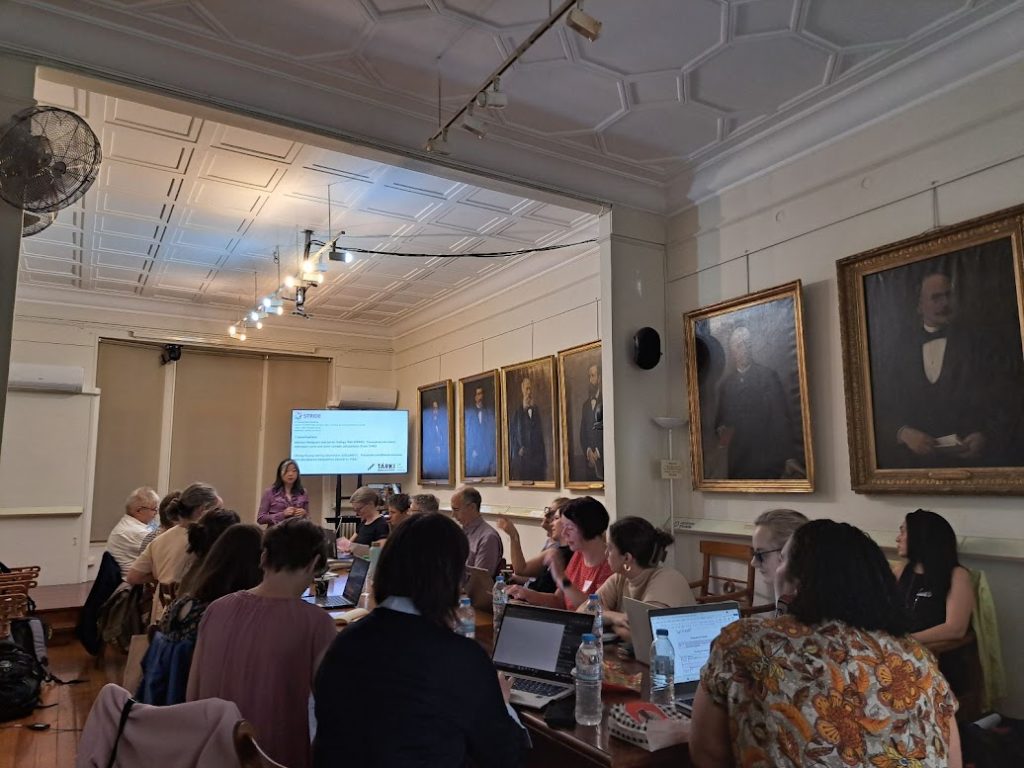On Monday, June 23rd, the University of Roehampton brought together researchers, educators, and key stakeholders for the Early Career Researcher Conference on Education, Inequalities, and Democracy at its London campus. The event served as an interdisciplinary platform for dialogue, showcasing impactful research at the intersection of education policy, inclusion, and democratic engagement. The event also launched the new University of Roehampton Research Centre on Education, Inequalities and Democracy, led by Professor Bryony Hoskins.
This timely conference was organised in collaboration with Professor Bryony Hoskins and two of her UKRI/EU-funded research projects: Gender Empowerment Through Politics in the Classroom (G-EPIC) and Strategies for Achieving Equity and Inclusion in Education, Training and Learning in Democratic Europe (STRIDE).
With STRIDE as a core feature of the event, several project researchers took centre stage to share their latest findings.
Sofia Ferrer, Research Assistant at the University of Roehampton, presented a systematic review that investigates whether early childhood education interventions reduce educational inequalities, particularly for children facing intersectional disadvantages.
Her findings reveal positive impacts from a range of early childhood initiatives that not only improve educational outcomes for disadvantaged groups but also narrow the gap between them and their more affluent peers. Ferrer also offered critical evaluations of which interventions proved most effective for children with varying needs, providing a roadmap for evidence-based policymaking in early education.
Dr. Dorota Szpakowicz, Postdoctoral Researcher at the Jagiellonian University (JU) in Kraków, presented the Polish study country report, focusing on whether increasing access to preschool education in Poland contributes to greater educational equality.
Her presentation provided a compelling historical overview of early childhood education reforms in Poland, followed by methodological insights and findings from the qualitative interview and media analysis sections of the report. The report illustrates how structural changes in preschool access are shaping pathways to equity within the Polish education system. STRIDE partners are conducting multiple case studies in five countries (Denmark, Hungary, Norway, Poland, and the United Kingdom) to gain new insights from longitudinal data regarding how students progress within the education systems. The methods employed include a quantitative analysis of longitudinal and registry data, tracking cohorts of students over time to evaluate inequalities in learning outcomes.
The panel, Education Policy for Equity and Inclusion, also welcomed contributions from Eva Kosberg and Simen Morstad Johansen of Oslo Metropolitan University. Kosberg explored assessment practices in citizenship education, while Johansen introduced innovative games designed to enhance civic understanding across varying domains. Both presentations emphasised the transformative role of participatory education tools in fostering democratic engagement and inclusion.
The conference culminated with the launch of Roehampton’s Research Centre for Education, Inequalities and Democracy—a major step forward in institutionalising critical work in this field. The new centre will support interdisciplinary research and collaborations aimed at generating global impact in educational policy, practice, and theory.
This event reaffirmed the importance of early career researchers in shaping the future of equitable education systems. With new findings, collaborative momentum, and institutional backing, the University of Roehampton and its partners are paving the way toward more inclusive, democratic, and evidence-informed education.
Interested in learning more?
Follow the work of the STRIDE and G-EPIC teams or connect with the Research Centre for Education, Inequalities and Democracy at the University of Roehampton.












